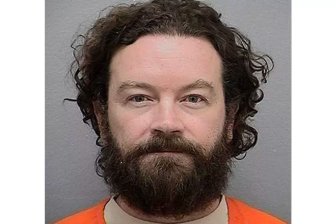A human-centred program in Edmonton that helps support people struggling with addiction and mental health challenges is getting a funding boost of $600,000 from the government of Alberta.

“This is a monumental investment in the city’s future,” Edmonton Police Service Chief Dale McFee said Friday, adding the program is evidence of the “dedication and passion for changing how we — as police — do our jobs.”
The money will allow EPS’s Human-centred Engagement and Liaison Partnership (HELP) unit to hire six additional social navigators who will partner with existing EPS personnel.
The team currently has 10 navigators, who connect vulnerable people with services like housing supports, basic needs, doctors, social workers, court support and even help them acquire personal identification.
McFee said these teams are preventing the most vulnerable from falling through the cracks.
“These people are following up with relentless follow-up,” he said.
Mike Ellis, Alberta’s associate minister of mental health and addictions, said the HELP unit is connecting those at risk of becoming “entrenched in the justice system” or harming themselves or others with recovery-oriented health care and concrete social supports.

HELP partners include Boyle Street Community Services, The Mustard Seed, Alberta Health Services, Alberta Community and Social Services, Community Paramedics, Forensic and Community Services, Bent Arrow Traditional Healing Society, Homeward Trust, George Spady Centre Society and Boyle McCauley Health Services.
HELP, which was launched earlier this year, works to build relationships with vulnerable Albertans, identify people’s needs and help them access the services and supports they choose.

Get weekly health news
“The partnership between EPS, Boyle Street and others involved in the HELP teams demonstrates the power of collaboration to create more effective pathways for support,” said Jordan Reiniger, executive director of Boyle Street Community Services.
“Having social navigators work with EPS officers shows the potential of adding social support to those interacting with the justice system. We look forward to a long partnership with EPS that supports our vulnerable neighbours in the most appropriate ways.”
McFee said the program has already had a big impact. In the last nine months, there’s been a decrease in certain types of police calls.
For instance, there’s been a seven per cent decrease in calls for service, a 10 per cent decrease in ‘trouble with person’ calls, an 18 per cent decrease in ‘trouble with intoxicated person’ calls and a 23 per cent decrease in suspicious person calls, McFee said. The police chief said calls regarding theft under $5,000 and ‘trouble not known’ have also gone down.

“Police services are an essential extension of the community and we are thrilled to partner with them in a shared approach to treating mental health and addiction as a health-care issue,” Ellis said.
“With additional resources, the Edmonton Police Service’s HELP teams will be able to help more vulnerable Albertans access health care and social supports. We are working closely with community organizations to help people enter recovery and lead a full, productive life.”
McFee said this program sends a message to Edmonton’s most vulnerable people: “they matter.”
“The HELP teams help break the arrest-remand-release cycle, easing pressure on our front-line officers and the justice system, as well as better supporting Albertans,” he said.
“We are grateful to all our partners, including the province of Alberta, who continue to help make positive changes in our community and on the lives of Edmontonians.”

The Opposition said $600,000 is not nearly enough. Lori Sigurdson, NDP critic for addictions and mental health, said the UCP government needs to be putting more emphasis on harm reduction.
“Four Albertans are tragically dying each day from preventable drug poisoning related deaths. Today’s response is utterly inadequate,” she said.
“Additionally, yesterday Minister Ellis was asked by a UCP MLA about an ‘NDP drug site.’ I’m disgusted the minister did not condemn this harmful stigmatizing language.
“While I am grateful for the work of community agencies to ensure people with addictions are supported, it is harder for agencies to work in their communities while the UCP actively stigmatizes people getting help,” Sigurdson said.








Comments